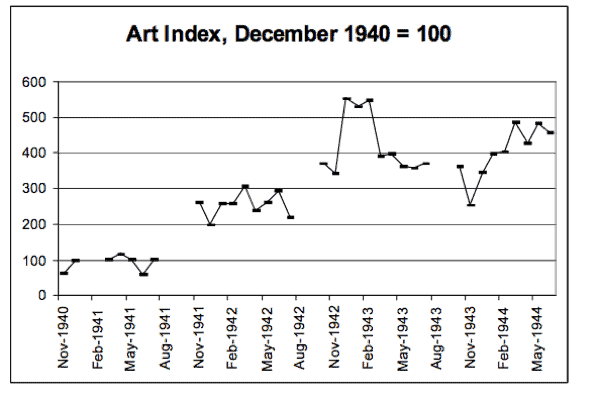If you're wondering whether art is a good investment, or you'd like to find creative, alternative ways to invest in art, Watches or Wine? Welcome to the Orbis & Vale Collectibles
A better way

Invest in Watches
Explore
Invest in Art
Explore

Invest in Wines
Explore

Investment News
Read More
Welcome to Orbis & Vale Collectibles
At Orbis & Vale Collectibles, we curate and safeguard the world’s most coveted treasures — from rare fine art and investment-grade timepieces, fine vintage wines, and other exceptional collectibles.
Guided by discretion, precision, and a deep appreciation for lasting value, we specialize in sourcing, authenticating, and managing luxury assets that transcend time and trend. Whether you’re building a private collection, diversifying your portfolio, or seeking legacy-grade acquisitions, our global network and expert insight ensure unparalleled access to the rare and remarkable.
Discover a world where rarity meets refinement — and where every asset tells a story worth preserving.
About Orbis & Vale Collectibles
At Orbis & Vale Collectibles, we specialise in sourcing and dealing in the rarest and most coveted alternative assets in the world. Our portfolio spans fine art, investment-gade wine, rare watches, and other exclusive collectibles of enduring value.
Working closely with leading global auction houses, private collectors, family offices, and institutions, we provide privileged access to highly sought-after assets that are typically unavailable to the public market. Our discreet, relationship-driven approach allows us to navigate private sales and off-market opportunities with precision and integrity.
Whether you’re expanding a collection, diversifying your investment portfolio, or acquiring a passion piece, Orbis & Vale offers unparalleled expertise, discretion, and access to the worlds finest alternative assets.

Explore
Mark Anderson
Director & Founder – Orbis & Vale Collectibles
With over 25 years of experience in the world of fine art, I have built a reputation as a trusted art dealer with long-standing connections to leading auction houses and institutions worldwide. My career has been dedicated to sourcing, curating, and advising on exceptional works that hold both cultural and financial significance.
Over the last 15 years, my expertise has expanded beyond art to include luxury watches and fine rare wines—two markets that have become a core part of my personal portfolio and investment strategy. Recognizing the unique opportunities within these sectors, I have assembled a dedicated team of specialists in each field, ensuring that our clients receive the highest level of guidance, insight, and due diligence when navigating these markets.
At Orbis & Vale Collectibles, my goal is to help clients discover and invest in assets that not only deliver long-term value but also bring personal enjoyment and pride of ownership
_M.Anderson

8 Things You Need to Know Before Investing in Watches
By Konstantin Startsev The hottest topic among watch fans today is how to make big money buying and selling select models. Note: This article does not constitute investment advice; it’s for educational purposes only. Watch collectors who are starting out often...

Art market boom during WWII with Drouot House as case study
During World War II, the art market experienced a massive boom in occupied countries. Its discretion, the inflation-proof character, the absence of market interventions and the possibility to resell artworks abroad, have been named as the reasons to explain why...

$109 Billion U.S. Wine Market Shows Uptick In Q1 2025 Shipments
Jon Moramarco, Partner with Gomberg-Fredrikson, shares data from their latest wine report, including an uptick in U.S. wine shipments as well as changing consumer trends in a $109 billion industry. After two years of declining wine sales volume in the U.S. market, a...
Investing in Collectibles vs. Banks & the Stock Market
Why Invest in Collectibles?
Investing in art, wine, watches, and other high-quality collectibles offers unique advantages over traditional options like stocks or savings accounts. Unlike volatile markets and low-interest bank returns, collectibles can provide long-term capital growth, diversification, and the enjoyment of owning tangible, culturally significant assets. They often hold or increase in value over time, particularly rare or historically important pieces, making them an attractive alternative investment for discerning collectors and investors alike.
True Ownership of Physical Wealth
Unlike stocks or fiat currency, collectible assets are tangible. You hold them outright — not reliant on third parties, banks, or institutions that could fail or freeze assets during crises.
Proven Performance in Times of Crisis
Historically, assets like, fine art, and luxury collectibles have consistently held or increased in value during recessions, wars, and financial crashes — often outperforming volatile financial markets.
Hedge Against Inflation and Currency Collapse
Tangible assets are priced globally and in real terms. As currencies devalue, the value of assets like , art, and rare commodities tends to rise, preserving purchasing power where cash fails.
Low Correlation to Financial Markets
Collectible assets often move independently of stock markets. This reduces portfolio risk because their value isn’t directly tied to corporate profits or interest rate shifts.
Protection Against Government Risk
In times of political instability or war, governments have been known to impose capital controls, freeze bank accounts, or limit withdrawals. Tangible assets held privately are beyond direct governmental reach.
Limited Supply, Growing Demand
Fine art, rare watches, vintage wine, and precious metals are all finite by nature. As global wealth continues to grow, the demand for these exclusive assets rises—driving steady, long-term value appreciation.
Tax Efficiency and Discretion
In many jurisdictions, collectibles can offer tax advantages, including capital gains reliefs or inheritance benefits. Additionally, they are private — not publicly listed like stocks — offering discretion and privacy.
Legacy, Enjoyment, and Status
Unlike paper assets, collectibles offer cultural, aesthetic, and emotional value. They can be enjoyed, displayed, and passed down through generations — combining wealth preservation with legacy building.

